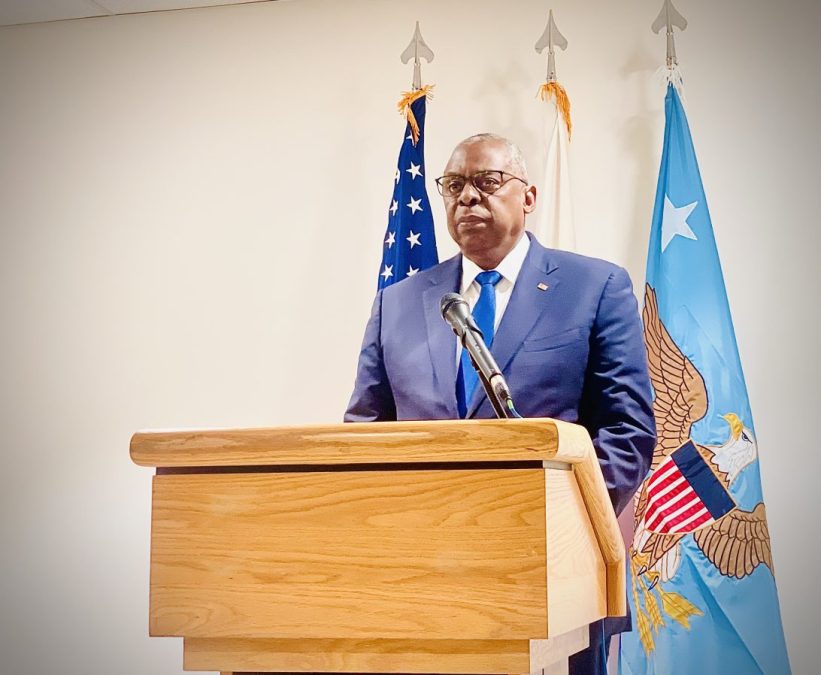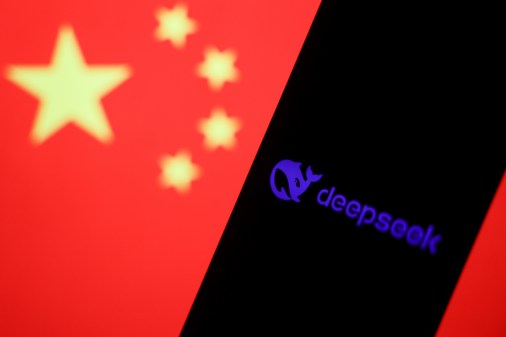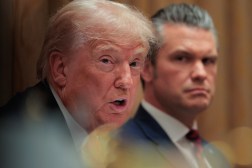US monitoring Taiwan Strait while China mobilizes warships, balloons nearby

YOKOTA AIR BASE, Japan — Pentagon leadership is keeping a close eye on security conditions in and around Taiwan, following alerts from its Ministry of National Defense that China is deploying sea- and air-based military assets near the island at proximities that seem too close for comfort, Defense Secretary Lloyd Austin told DefenseScoop on Wednesday.
Tensions between China and Taiwan have been on the rise in recent years — particularly since Chinese President Xi Jinping revealed his intent to ensure that the People’s Liberation Army would be prepared and equipped to “unify” (or invade) its smaller neighbor by 2027. Although Beijing sees the island as a piece of its territory, Taipei has been under the rule of its own separate government for roughly 75 years.
The security situation in the Indo-Pacific seems more uncertain this week, after Taiwan national security officials raised alarm that they’re detecting a large fleet of warships, high-altitude surveillance balloons and other markers of potential future aggression they associate with China’s military.
“We have remained focused on the [People’s Republic of China’s] activity for quite some time. That’s why the PRC has been our pacing challenge for the last four years. We’ve talked about their coercive actions in the region. And certainly, this latest activity is something that we will continue to monitor and make sure that that nobody does anything to change the status quo in the [Taiwan Strait],” Austin said during a press briefing to close out a multi-day trip to Japan, which will mark his final visit to the Indo-Pacific as the U.S. defense chief.
The secretary highlighted joint pursuits that America and Japan executed on during his tenure, including an ongoing push to collaboratively upgrade their militaries’ command-and-control frameworks and expanding their shared operational responsibilities.
Notably, the Taiwan Strait is considered one of the world’s most critical waterways for global shipping, as heaps of valuable trade assets pass through it every day. Beijing so far does not appear to have made it clear whether the capabilities its surging near the strait this week are part of a training exercise, military drill — or some other, more threatening scheme.
Responding to DefenseScoop’s questions in Japan Wednesday, Austin didn’t say if he’s spoken to his Taiwanese counterparts about the still-evolving incident, or if his team has any indications of China’s reasoning for the deployments near the island this week.
“Our policy hasn’t changed. We’ll continue to do what we can to help Taiwan acquire the means to defend itself. Again, that work continues on. But this latest activity — we’ll continue to monitor it and see what happens,” he said.
Austin also expressed confidence that the U.S. military will continue to have the capacity and focus to deter China and work with its allies to promote peace around the Indo-Pacific, even as conflicts around the Middle East and in Ukraine continue to expand.
“Throughout [the last four years], the PRC has been our pacing challenge. And we have done a number of things that — globally — can help our partners and allies,” he told DefenseScoop. “A combination of what we’ve done to help Ukraine defend itself and put more pressure on Russia, to help Israel do what it’s done, has made Russia weaker and Iran weaker as well. And so that has had an impact.”






